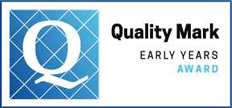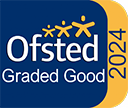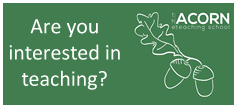Nursery News 24th June 2024
NURSERY NEWS
Monday 24th June 2024 – Edition 339
Find out About:
A. Review of the Year
B. Ice Pops, Please, not Lollies.
C. Availability in September 2024 of additional sessions for children already attending Little Nursery.
D. Willow Nursery School’s Ofsted Report
E .What are the children learning about this week?
A. Review of the year
At this time of year, we carry out a big review of our school. In the last few days Miss Howe, Mrs Cashmore and Miss Allen have been talking to the Big Nursery children individually, to gain their views about their school, with regard to what they like, what they think they have learned and what they would like to see change. All school staff and Governors are busy filling in questionnaires too.
This information helps us to plan our areas for development next year.
I always ask parents for their views too at this time of year.
We usually ask just two questions:
- Please comment about what we do well at Willow.
- Please tell us one thing you would like to see at Willow that you would consider to be an improvement and/or development.
Please write a short email and send to office@willownursery.co.uk
If you wish your comments to inform my review, please send your email by the end of this week, Friday 28th June. I will then compile all the comments and respond to them in a future newsletter, on Tuesday 9th July.
B. Ice Pops Please, not Lollies.
Thank you to all the parents who have donated some ice pops. We will definitely be having them every day this week as the weather has been forecast to be very hot.
Parents have been very generous. Some parents have sent in ice lollies. Again very generous, but some brands are not suitable for children with allergies. On Thursday I went to get ice pops from the school freezer and found some ‘Rowntrees Watermelon’ Lollies. They had an allergy warning on them:
May contain: peanuts, nuts and egg. Not suitable for consumers with a milk allergy.
So, I would ask parents to just provide Ice Pops as I have never found ice pops to be unsuitable for those with allergies. We do currently have two children at Willow who have severe allergies to some of the foods advised in the allergy warning so please help us to keep all our pupils safe.
C. Availability in September 2024 of additional sessions for children already attending Little Nursery.
Back in May, I wrote a short piece about our enrolment processes during the summer term, so here is an excerpt from Nursery News 333 and some updates….
Our next task is to enrol children from our waitlist aged 3+ who are due to start with us in Big Nursery in September 2024. This may take a few weeks. We completed this task last week. Big Nursery is now full for September 2024. We are no longer adding names to our contact list for a space in Big Nursery 2024-25
Then we will be looking to enrol children eligible to start in our 2+ Little Nursery in September 2024. We are just awaiting the return of paperwork from these families. We consider our 2 year old places to be full now for the Autumn term.
As this work is now almost complete, we can turn our attention to the children who are already attending Willow.
We have two groups of children currently in Little Nursery who will remain in Little Nursery in September 2024. Some time ago, in March 2024, we asked Little Nursery Blue Group (Children date of birth 1.9.21 to 31.12.21) parents to select which attendance pattern they would like for their child when they will become 3+age, in January 2025.
Last week I asked Little Nursery Orange Group ( Children date of birth 1.1.22 to 31.3.22) parents to select which attendance pattern they would like for their child when they become 3+age range in April 2025. These parents will return their paperwork by Wednesday this week.
We now need to go to these parents in Little Nursery Blue and Orange Groups to see if any parent would like additional spaces for their child from September 2024 until they become 3+age.
AS PART OF THE PARENT CONSULTATIONS NEXT WEEK, I WILL BE JOINING MISS TYLER ON TUESDAY EVENING, AND MRS WATSON ON THURSDAY EVENING. We can talk about additional sessions for your child, should you require some, at that appointment.
The final part of Summer Term arrangements is to provide transition information to families of children in Little Nursery Yellow group (Date of birth 1.4.21 to 31.8.21). We aim to have this paperwork ready to hand to you at next weeks’ parent consultations..
Thank you for being so patient. We have 8 termly cohorts of children here in the Nursery during the Summer Term, so it takes some time to meet the needs of each group.
Sometimes things happen, beyond our control, that slows down our processes. Which seems to bring me along quite nicely to:
D. Willow Nursery School’s Ofsted Report
I hope you all received an email on Thursday 20th June regarding our recent Ofsted inspection. We are very proud of our result being judged Good overall with recognition that our ‘Behaviour and Attitudes’ judgement was deemed to be Outstanding.
Approximately once every four years Ofsted re-write their standards for Ofsted inspections. Ofsted and the government are always looking to drive an improvement in educational standards in schools. Ofsted then set out to assess all schools within a four-year cycle.
We have been told that the ‘bar has been raised’ and the standards Ofsted currently are looking for are higher than ever.
We, as a Maintained Nursery School receive a full School’s Ofsted Inspection. The standards that Willow is measured against are the same standards used to inspect all Primary and Secondary schools.
So I have added some information from the Ofsted School Inspection Handbook, so, if you are interested you can see for yourselves how rigorous these Inspections are. All writing below in purple is from the Ofsted handbook.
For example, these are the grade descriptors for a ‘Good’ outcome under the heading ‘Quality of Education’:
Good (2)
The curriculum is broad and ambitious for all pupils.
- Leaders adopt or construct a curriculum that is ambitious and designed to give all pupils, particularly disadvantaged pupils (including pupils with SEND), the knowledge and cultural capital they need to succeed in life. This is either the national curriculum or a curriculum of comparable breadth and ambition.
- Pupils study the full curriculum; it is not narrowed:
- in primary schools, a broad range of subjects (exemplified by the national curriculum) is taught in key stage 2 throughout Years 3 to 6
- in secondary schools, the school teaches a broad range of subjects (exemplified by the national curriculum) throughout Years 7 to 9. The school’s aim is to have the EBacc at the heart of its curriculum, in line with the DfE’s ambition where this applies, and good progress has been made towards this ambition.
- The curriculum may undergo necessary changes (for example, following a review by leaders or to take account of COVID-19) and certain aspects may be more developed than others. Where this is the case, these changes do not prevent all pupils having access to an appropriately broad and ambitious curriculum. Where adaptations to curriculum breadth are made for particular pupils, there is a clear rationale for why this is in those pupils’ interests, and, where appropriate, there is a clear plan for returning all pupils to studying the full curriculum.
- Reading is prioritised to allow pupils to access the full curriculum offer.
- A rigorous and sequential approach to the reading curriculum develops pupils’ fluency, confidence and enjoyment in reading. At all stages, reading attainment is assessed and gaps are addressed quickly and effectively for all pupils. Reading books connect closely to the phonics knowledge that pupils are taught when they are learning to read.
- The sharp focus on ensuring that younger children and those at the early stages of reading gain the phonics knowledge and language comprehension necessary to read, and the skills to communicate, gives them the foundations for future learning
The planning and implementation of the curriculum supports a strong impact on pupils’ learning.
- The school’s curriculum is coherently planned and sequenced towards cumulatively sufficient knowledge and skills for future learning and employment.
- The curriculum is successfully adapted, designed or developed to be ambitious and meet the needs of pupils with SEND, developing their knowledge, skills and abilities to apply what they know and can do with increasing fluency and independence.
- Teachers have good knowledge of the subject(s) and courses they teach. Leaders provide effective support, including for those teaching outside their main areas of expertise.
- Teachers present subject matter clearly, promoting appropriate discussion about the subject matter being taught. They check pupils’ understanding systematically, identify misconceptions accurately and provide clear, direct feedback. In so doing, they respond and adapt their teaching as necessary without unnecessarily elaborate or individualised approaches.
- Teachers ensure that their own speaking, listening, writing and reading of English support pupils in developing their language and vocabulary well.
- Teachers create an environment that focuses on pupils. The textbooks and other teaching materials that teachers select – in a way that does not create unnecessary workload for staff – reflect the school’s ambitious intentions for the course of study. These materials clearly support the intent of a coherently planned curriculum, sequenced towards cumulatively sufficient knowledge and skills for future learning and employment.
- The work given enables pupils to achieve the aims and ambition of the curriculum, which is coherently planned and sequenced towards cumulatively sufficient knowledge.
- Over the course of study, teaching is designed to help pupils to remember long term the content they have been taught and to integrate new knowledge into larger ideas.
- Teachers and leaders use assessment well. For example, they use it to help pupils embed and use knowledge fluently, or to check understanding and inform teaching, or to understand different starting points and gaps as a result of the COVID-19 pandemic. Leaders understand the limitations of assessment and do not use it in a way that creates unnecessary burdens on staff or pupils.
- Any remote education is well integrated within course(s) of study, and is well designed to support the wider implementation of the school’s curriculum.
The impact of the education which pupils receive is strong, including for disadvantaged pupils and pupils with SEND.
- Pupils develop detailed knowledge and skills across the curriculum and, as a result, achieve well. This is reflected in the work that pupils produce.
- Pupils read widely and often, with fluency and comprehension appropriate to their age. They are able to apply mathematical knowledge, concepts and procedures appropriately for their age.
- Where available, impact is reflected in results from national tests and examinations that meet government expectations, or in the qualifications obtained. Teacher assessed grades from 2020 and 2021 will not be used to assess impact.
- Pupils are ready for the next stage of education, employment or training. They have the knowledge and skills they need and, where relevant, they gain qualifications that allow them to go on to destinations that meet their interests and aspirations and the intention of their course of study. Pupils with SEND achieve the best possible outcomes.
In order for the Behaviour and Attitudes judgement to be outstanding, the school must meet all of the good criteria securely and consistently and it must also meet the additional outstanding criteria.
Outstanding (1)
- The school meets all the criteria for good in behaviour and attitudes securely and consistently.
- Behaviour and attitudes are exceptional.
In addition, the following apply:
- Pupils behave with consistently high levels of respect for others. They play a highly positive role in creating a school environment in which commonalities are identified and celebrated, difference is valued and nurtured, and bullying, harassment and violence are never tolerated.
- Pupils consistently have highly positive attitudes and commitment to their education. They are highly motivated and persistent in the face of difficulties. Pupils make a highly positive, tangible contribution to the life of the school and/or the wider community. Pupils actively support the well-being of other pupils.
- Pupils behave consistently well, demonstrating high levels of self-control and consistently positive attitudes to their education. If pupils struggle with this, the school takes intelligent, fair and highly effective action to support them to succeed in their education.
Good (2)
- The school has high expectations for pupils’ behaviour and conduct. These expectations are commonly understood and applied consistently and fairly. This is reflected in pupils’ positive behaviour and conduct. Low-level disruption is not tolerated and pupils’ behaviour does not disrupt lessons or the day-to-day life of the school. Leaders support all staff well in managing pupils’ behaviour. Staff make sure that pupils follow appropriate routines.
- Leaders, staff and pupils create a positive environment in which bullying is not tolerated. If bullying, aggression, discrimination and derogatory language occur, they are dealt with quickly and effectively and are not allowed to spread.
- There is demonstrable improvement in the behaviour and attendance of pupils who have particular needs.
- Pupils’ attitudes to their education are positive. They are committed to their learning, know how to study effectively and do so, are resilient to setbacks and take pride in their achievements.
- Pupils have high attendance. They come to school on time and are punctual to lessons. When this is not the case, the school takes appropriate, swift and effective action.
- Suspensions are used appropriately. The school reintegrates suspended pupils on their return and manages their behaviour effectively. Permanent exclusions are used appropriately as a last resort (see statutory guidance on school exclusion).
- Relationships among pupils and staff reflect a positive and respectful culture; pupils are safe and they feel safe.
E. What are the children learning about this week?
The theme this week is air and sea transport
In Catkins, the children will learn about flying through space in rockets. Staff will show the children images of rockets and model to the children, how to create their own rockets out of recycled materials. They will use tubes, paper and pens to decorate their rockets and will be encouraged to fly them outside.
In Catkins garden, the children will be investigating water. They will explore transporting water using pipes, jugs, buckets and other containers. Although the children will have access to aprons, they will likely get quite wet. Please provide spare clothes, including shoes and socks for the days your child attends.
In the Link, the children will build on their fine motor skills as they fold paper aeroplanes. They will be shown how to fold paper along specific lines to create a plane that they can take into the garden and fly. As they work, staff will talk to children about travelling on planes and encourage them to recall their own experiences such as holidays or times when they have seen planes in the sky.
In Room 4, the staff will work with the children to create box models of planes and boats. They will talk to the children about air and sea travel and share personal experiences to encourage conversations. Children will be shown how to attach materials together using glue and tape. The children will have the opportunity to paint pictures of the many types of sea and air transport that they have learnt about during the week.
In Room 2, the children will use magnets and tweezers to create words linked with travel and transport. The children will be encouraged to use tweezers to pick up and arrange letters to create new words. There will be word templates to support the children with their spelling and they will have the chance to spell any other words that they link with transport.
In Room 1, the children will focus on improving their fine motor skills by cutting and sticking pictures to create a suitcase that is suitable for them to go on holiday. The children will discuss with staff about locations that they would like to visit and they will cut out images that are suitable for the place that they have chosen. Staff will encourage the children to be as independent with their work as possible but will support where necessary.
Outside, the children will have a lot of fun with water play. They will have access to the water tray, boats and other water toys. Children will be encouraged to wear aprons, but may get wet. They will learn about staying safe in the sun and the importance of wearing a hat and sun cream. Staff will reinforce the importance of staying hydrated to the children and they will be reminded to cool down in the shade/ inside school and drink lots of water.



